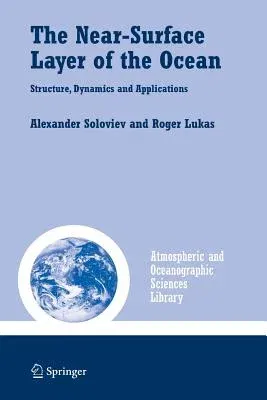Alexander Soloviev
(Author)The Near-Surface Layer of the Ocean: Structure, Dynamics and ApplicationsPaperback, 25 November 2010

Qty
1
Turbo
Ships in 2 - 3 days
In Stock
Free Delivery
Cash on Delivery
15 Days
Free Returns
Secure Checkout

Part of Series
Atmospheric and Oceanographic Sciences Library
Print Length
574 pages
Language
English
Publisher
Springer
Date Published
25 Nov 2010
ISBN-10
9048170257
ISBN-13
9789048170258
Description
Product Details
Authors:
Book Format:
Paperback
Country of Origin:
NL
Date Published:
25 November 2010
Dimensions:
23.39 x
15.6 x
3.05 cm
ISBN-10:
9048170257
ISBN-13:
9789048170258
Language:
English
Location:
Dordrecht
Pages:
574
Publisher:
Weight:
816.47 gm